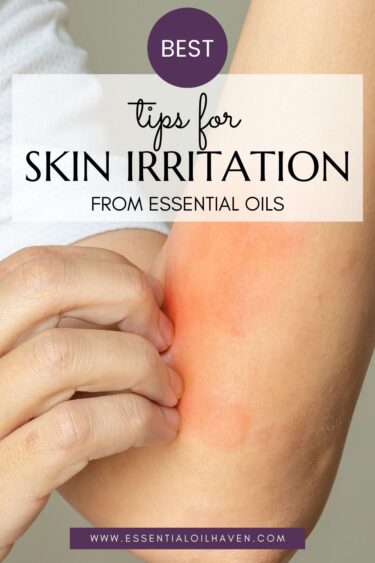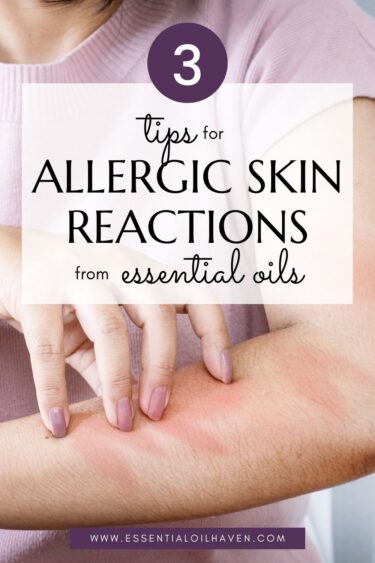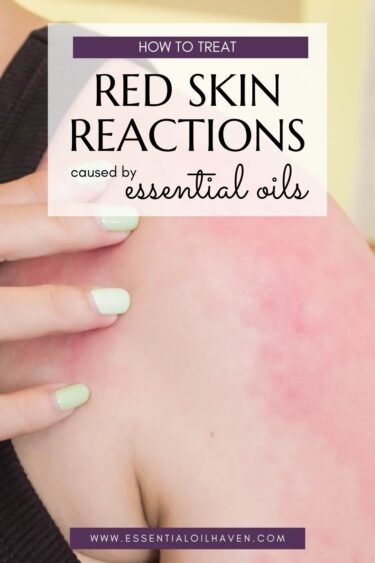
However, it does happen. It’s happened to me.
Worse, I’ve burnt my kids’ skin, as well. So I can tell you from a bit of first-hand “mom” experience, how terrible that feels.
This post contains affiliate links, which means if you make a purchase through these links, I may receive a small commission at no extra cost to you. Read my full disclosure policy here.
But fear not, there is an easy solution to essential oil skin sensitivity, especially if it’s minor.
How to Fix an Essential Oil Skin Reaction
Adverse skin reactions to essential oils include redness, irritation, or itching. It’s important to take immediate steps to soothe and alleviate the discomfort.
The first thing you’ll want to do is to add fatty oils to the affected area. Fatty oils, also known as carrier oils, help to dilute the essential oil on your skin, reducing its concentration and potential irritation.
So, grab your coconut oil, almond oil, jojoba oil, whatever you have on hand – and rub it over the essential oil irritation.
(If you don’t have any carrier oil on hand, grab whatever kitchen oil you have: grapeseed, olive oil, sunflower, canola… anything will do at this point!)
Why Applying Fatty Oils is Effective

- Dilution: Carrier oils like coconut oil, almond oil, or olive oil dilute the essential oil that caused the reaction, reducing its intensity on the skin.
- Soothing Properties: Fatty oils have moisturizing and calming properties that can help soothe irritated skin. They protect the skin and promote healing.
- Immediate Relief: Applying fatty oils provides immediate relief by cooling the skin and reducing inflammation caused by the essential oil.
To use fatty oils for skin relief, simply (gently) massage the oil onto the affected area. You may need to reapply a few times before the skin irritation subsides.
If symptoms persist or worsen, seek medical advice, especially if you have a known allergy or sensitivity to certain essential oils.
And that’s how to respond if you’re experiencing an adverse skin reaction due to essential oils.
Final Thoughts

And keep your trusty coconut oil nearby, just in case.
References
Tisserand Institute: Irritations and Allergic Skin Reactions



Leave a Reply